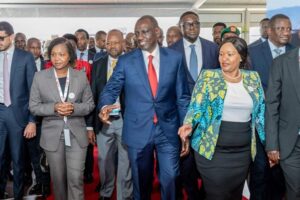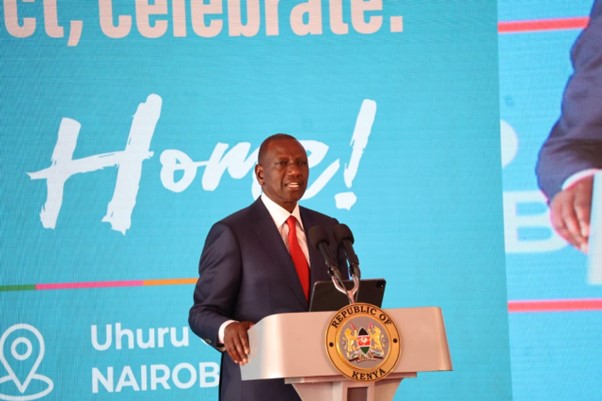In a bid to drive economic growth through tourism, Kenya is launching two new visa initiatives aimed at attracting global digital professionals and transit travelers.
President William Ruto announced the introduction of the Digital Nomad Work Permit and the Transit and Long Connection Travelers Electronic Travel Authorization (ETA) during the 14th Magical Kenya Travel Expo (MKTE) held at the Uhuru Gardens National Monument & Museum in Nairobi.
These initiatives are designed to open new revenue streams for Kenya by capitalizing on the rising trend of remote work and global mobility. The Digital Nomad Work Permit will allow digital professionals to live and work remotely from Kenya, while the Transit ETA will give long-connection travelers an opportunity to explore the country’s tourism offerings during their layovers.
“With the rise of remote work and increased air travel, Kenya is well-positioned to tap into these markets,” President Ruto explained.
“The Digital Nomad Work Permit and Transit ETA programs will not only boost tourism but also contribute to our broader economic agenda by creating jobs, driving spending, and supporting the service sectors.”
Kenya’s tourism industry is a vital part of its economy, contributing approximately 8.8percent to the country’s GDP and directly employing over 1.6 million Kenyans.

With the aim of welcoming over 5 million international visitors annually by 2027, these visa initiatives are seen as pivotal in diversifying the tourism sector and enhancing Kenya’s competitiveness in the global market.
President Ruto also highlighted the ongoing infrastructural developments designed to accommodate the anticipated increase in visitors, including upgrades to airports and improved road connectivity to popular tourist destinations like the Maasai Mara and coastal regions.
These improvements are expected to enhance Kenya’s ability to attract high-spending tourists and business travelers.
Tourism and Wildlife Cabinet Secretary Rebecca Miano emphasized the need for collaboration among industry stakeholders to fully leverage the benefits of these initiatives. “Tourism is a key economic pillar, and through strategic partnerships, we can position Kenya as a leading destination for both leisure and business travel,” she said.

Kenya Tourism Board (KTB) CEO June Chepkemei added that next year’s MKTE will focus on positioning Kenya as a leading destination for meetings, incentives, conferences, and events (MICE), a sector that has been identified as a potential driver of economic growth due to its high-value clientele.
The MKTE event, which runs until October 4, 2024, has attracted over 4,000 delegates, including representatives from international markets such as Europe, North America, Asia, and Africa.
The expo also includes participation from academia, with 17 universities presenting research and innovations aimed at advancing Kenya’s tourism sector, underscoring the country’s commitment to growth, innovation, and sustainable development.










